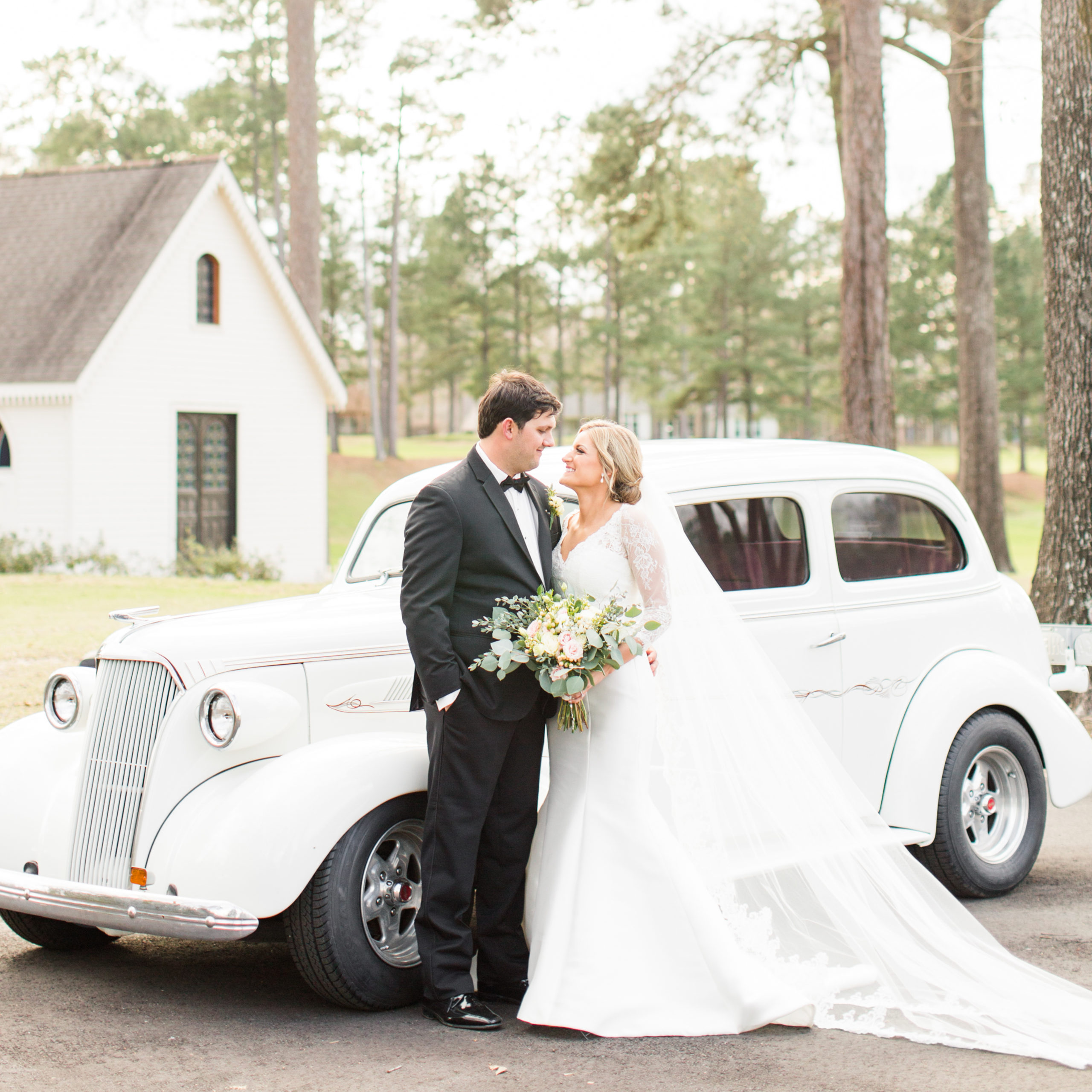A big topic to think about when planning a wedding (and a marriage!) is something that goes way beyond the wedding day: finances. Money is a huge cause of stress and conflict in any relationship, but it doesn’t have to be with a good game plan and lots of communication. My husband and I have been married for a year and a half, and as of today we’ve officially paid off his student loans and my car! (over $43k total – YAYYY! Now just to tackle his truck note!) In honor of that, I’m sharing my 5 favorite tips for taking control of your finances and tackling debt!
Before we dive in, I want to point out that we haven’t made TONS of sacrifices to pay off this debt. We probably wouldv’e knocked it out a lot sooner, but we didn’t want to give up traveling, cable, or eating out. We don’t clip coupons, and we haven’t picked up part-time jobs. We’ve also had some pretty rough bumps in the road as well. Several unplanned surgeries were necessary, and for 4 months this year we took in my 4 year old niece literally overnight when my dad suffered a stroke. That meant school tuition, clothes, food and toys. We also booked last minute plane tickets to Arizona earlier this month while dad was being treated there and took a turn for the worst. We didn’t plan for those specific things to happen, but we had an emergency back-up plan in place that meant we didn’t get completely derailed and off track.
So how are we doing it? I went to school for accounting and that’s my day job, so I LOVE budgeting and numbers. But I know many people out there struggle with debt, budgeting, and money in general, so today I’m going to share with you my top 5 tips on taking control of your money and getting out of debt. Besides photography, this really is my favorite hobby!
Number 1: Budget Budget BUDGET
This is hands-down the most important step! If you aren’t directing your money where to go, then it’s likely not going to go where you want it. Paydays are my favorite days of the month, not because we’re getting paid, but because I’m SO excited to make our budget (I’m weird, I know). There’s lots of great resources on the internet (read: Dave Ramsey) on budgeting, and I’ll share a blog post soon about my exact system for creating a budget that works!
Number 2: Track Every Dollar
This goes hand in hand with #1. If you aren’t tracking your spending, making a budget is pretty useless. I’ve used an app for this for years, but you have to manually input transactions, which isn’t everyone’s cup of tea. You have to really commit to it! I did get my husband on board though, and I think if he can do it… anyone can! Manually adding transactions is also good because it forces you to 1) be more aware of your spending (it can be pretty painful to punch in those big purchases) and 2) helps you keep an eye out for fraudulent transactions. In fact, one time we realized a server at a restaurant had changed the tip amount on my husband’s receipt, and charged us $20 more than he should have. We probably wouldn’t have caught that if we weren’t looking at every transaction consistently! The app I use is called “Goodbudget,” and it’s based on Dave Ramsey’s envelope system. Also, I don’t have experience with them, but there’s also several other apps out there that will link to your bank account and track spending for you (like Mint or Everydollar). Either way, find one that works and stick with it!
Number 3: Use Credit Cards
I know, I KNOW, credit cards are BAD! At least, that’s what Dave Ramsey will tell you. And we agree to an extent. Obviously, if you aren’t responsible with them, credit cards can be a terrible idea. But if you know you can be responsible, and you follow steps 1 and 2, it’s easy to implement a credit card into your cash flow. The number one rule is to pay it off EVERY. MONTH. And the only way to do that is to track your spending. I know that at any moment, 365 days out of the year, I have enough cash in the bank to pay off my credit card. Basically, think of it no differently than a debit card. You wouldn’t charge $2k on your debit card if you only have $500 in the bank, right? Same thought process with the credit card.
So why not just use a debit card? I’ll be honest with you, I NEVER use debit. In fact, I can’t even tell you the PIN to that card. I prefer credit for 2 main reasons. First, it’s safer. If someone gets your info and uses it, they aren’t stealing YOUR money directly out of your bank account. So you aren’t out of pocket anything, not even temporarily. Second, two words: cash rewards. Since we got our first rewards card about 2 years ago, we’ve earned about $3-4k cash back…on money we would’ve spent anyway! It took a while to convince my hubby to get one, because he says people with credit cards spend more (which can be true!), but at the risk of sounding like a broken record, if you follow steps 1 and 2, you don’t have to worry about that! I pay everything that I can with the credit card that doesn’t charge added fees to do so. This includes our cable bill, car insurance (big one) and 100% of incidental spending, like groceries, gas, etc.
Number 4: Debt Snowball
I won’t go too in-depth on this here, because it’s a Dave Ramsey concept (can you tell that I like him yet?), and he does a great job explaining it on his website! What I will say is: it works. And we love it. The debt snowball is what makes paying off debt fun!
Number 5: Get an HSA (Health Savings Account)
This isn’t completely necessary like numbers 1-4 (in my opinion), so think of it as a “bonus tip.” With the crazy increases in insurance lately (can I get an amen?!), having a high deductible plan with an HSA has saved us a good bit of money. This is different for everyone, and you really have to spend time researching and “running the numbers” to see what works for you. But generally, a high-deductible plan has cheaper monthly premiums. When I switched to mine, I used the difference in premiums to fund an HSA. The main benefit here is tax savings…any money used for medical expenses from an HSA are tax free! Additionally, like the name implies, it really is another savings account- one that isn’t tied in with my other accounts, so I kind of “forget about it,” but it’s there in case of unexpected emergencies or surgeries (which happened to us and can happen to anyone.) So having this savings account meant that not only were we NOT scrambling for money to pay for a slew of medical bills, but it didn’t slow down our debt paying off AT ALL! How awesome is that?
If you’re serious about getting out of debt, these tips are a great starting point. Or if you’re lucky enough to be debt free, you can use these same principals to build up your retirement fund and maybe even retire early! There’s nothing like the peace of mind you get from knowing that you’re in control financially!

